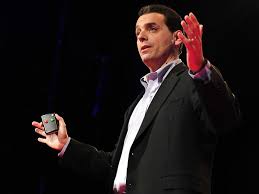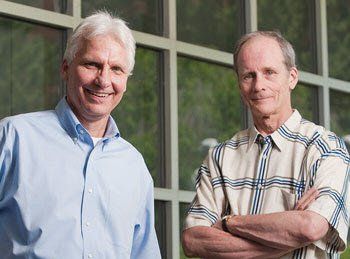Creativity and Health
|
Stress and Illness
Creative Motivation
If we want to be motivated, need we look any further than love and joy, and curiosity and interest?
And don't all of these things come naturally to us?
Or must we pretend that motivation comes from being prodded and coaxed - and controlled
?
If, for young children, interest and motivation seem to come effortlessly, is it true that motivation needs to be "taught" and trained? Or does motivation simply follow on from tapping into our true, innately creative nature?
The "creative assets" we're all born with make an impressive list, to include:
- inspiration and curiosity (for waking up our interest)
- initiative (to give a head start to our ideas and plans)
- free will (so we make truly our own decisions)
- joy and love (for directing us in our adventures)
- trust (for opening us to others, as well as to ourselves)
- spontaneity (for keeping us dynamic and responsive)
None of these "assets" need prompting. Rather, by virtue of being creative, they operate independently - and by themselves.
Our part of the bargain is simply to allow them space and permission... by knowing what crushes our creativity, namely "stress forces", like anger
and fear.
These "stress forces" can very quickly crowd out our creativity. Take blame culture - as pushed on us all by anger, the stress force that makes us furious with self-righteousness, to leave us all pretending that it's always someone else who's "to blame". Blame culture - and anger
- illustrate very well the handiwork of stress forces, which operate subconsciously to distort our appetites and desires - and steer us away from our own, innate direction, attention and loyalties.
*
When we open up to love, joy and curiosity, a more powerful motivation is never far behind.
Nothing motivates us as much as to love or enjoy someone or something, or to permit our own curiosity about the world around us (and about what's inside our own mind and imagination).
What motivates most powerfully are things like commitment, inspiration and sense of purpose - much more so than those more compulsive "forces" like fear of failure or all-consuming guilt.
Quality and excellence in human endeavour come from "creative forces" like love and joy - personal creativity, in other words. What puts us on the wrong track is stress, and stress's "mind bullies", like compulsive greed
and fear
.
Success is bound to follow, not just in our art and industry but even in our personal lives, families and societies.
*
Nevertheless, there's long been a fashion for disregarding the potential of us human beings to be self-governing. It's as if we're not supposed to be directed by our innate captaincy and motivation - as delivered by such "creative forces" as joy and love.
Instead, in place of true cooperation, respect and trust, there seems to be a lot of control, and even coercion.
*
Take education. A culture of targets and bureaucratic overreach threatens to squeeze the initiative and joy out of the classroom - for pupils and teachers alike.
Taking true ownership by taking true responsibility for one's own
work seems to be seen as an over-costly liberty, with human autonomy and originality - and creativity - seemingly something seen as needless or dangerous.
Yet creativity has a growing number of advocates.
One such is Dan Pink, who has observed how costly the same development is proving within the world of private business.
In his TED talk from 2009, The puzzle of motivation, Pink reveals the counterproductive nature of financial incentives as a means of "boosting" worker's performance, Pink's conclusion is that, "there is a mismatch between what science knows, and what business does."
Incidentally, in his TED talk about motivation, Dan Pink also highlighted an essential point about creative thinking and puzzle solving - and how this, too, can be sabotaged by stress.
Once again, the obvious question that needs answering is: what is dragging us down this dead-end in the first place?
*
If there's a "lesser" part of our nature, then surely all of us
have more than enough personal experience of it. Just take sibling rivalry - something familiar to most of us. Here, we become (unconsciously) swept up in a clash of egos or ambitions - whether literally with our siblings, or perhaps with our workmates or neighbours struggling with "status anxiety".
When caught up in petty squabbles, it's as if we become unrecognisable to ourselves. The "squabble instinct" takes over, and "stress forces"
switch over to what feel like reptilian ways of seeing the world - as where we develop "tunnel vision" focus, and desire only to dominate and control (due to the
compulsive desire-driven interest in outward power).
The trouble is, instincts and "forces" like these are great at grabbing our attention. But these same "stress forces" can, of course, prove our undoing.
*
Again, to be brutally honest, we can easily revert to patterns seen in more "primitive" creatures, even if we try to conceal this through a veneer of sophistication and cleverly worded "justification".
Still, the truth is never far from the surface - for example when it comes to our instinctual fondness for "pecking orders".
*
Alternatively...
Starting with our own self, we can start to grow a little more conscious of those unconscious forces that otherwise take us over - like compulsive desire and
fear.
Equally, we need to grow a little scepticism towards that ancient weapon of enforcing compliance: the fear of punishment (“stick”) and the desire for approval (“carrot”).
Very tellingly, this “carrot and stick” means of controlling us is even referred to as “controlled motivation” in the psychological literature.
Though a very young field of study, the psychology of motivation finds only more and more evidence that controlled motivation only compromises our well-being, while actually weakening
our performance (except in the most rudimentary of tasks, such as tapping as fast as possible on a keyboard).
The only conclusion we can draw is that it's time to stop treating a human being as a mere mule to be ruled through the sugar lump and boot.
When free from fear etc., we're reunited with our own, true motivational "rocket fuel": joy, love, inspiration, along with empowerment and initiative.
Armed with such innate
motivational forces, our motivation, willpower and self-control will take care of themselves.
Meanwhile, such essentials for our well-being as adopting a healthy diet - and the habit of regular exercise, and caring properly for our loved ones - can be restored to their rightful place in our lives, alongside a return to real
motivation.
*
John Lennon knew all about "bad" motivational techniques
- like when others seek to intimidate us through awakening our fear.
Never one to shy away from telling it like it is, Lennon's song Working Class Hero
includes these lines: “They hit you at school... When they’ve tortured and scared you for twenty-odd years... you can’t really function you’re so full of fear.”
Lennon was written off in school reports as “certainly on the road to failure” – but the evidence speaks to a rather different reality.

Precisely because they operate by taking control, “stress forces”
can mislead us, and direct us to take ill-judged shortcuts.
Sooner or later, the chickens come home to roost, as where a
compulsive desire-infected culture of bonuses saw too many home loans pushed on a public incapable of ever paying them back, leading to the subprime mortgage splurge – that, in 2008, collapsed the economy of the globe.
The tragic tale of the ship Titanic
is another example.
*
The answer is to trust in our own, innate, creative motivation, or, as Ryan and Deci would call it, autonomous
motivation.
Whether at school, in the workplace, or at home, Ryan and Deci propose a far better approach than gung-ho carrot-dangle and stick-poke. In a nutshell, they advise us to have more of a vote in how our life goes, so we decide things truly for ourselves. Setting out their stall in “self-determination theory”, Ryan and Deci refer to autonomy as a psychological need. Yet they hasten to explain that autonomy needn’t lead to our closing the drawbridge and retreating into ourselves. Quite to the contrary, they see the individual and the community as thriving simultaneously. Indeed, Ryan and Deci see autonomy as existing alongside not just competence, but relatedness
also, these fellow needs being all-of-a-piece.
Ryan and Deci’s research points a way forward for all of us, with autonomous outperforming controlled motivation in areas to include: encouraging healthier lifestyles, coaching athletes, running companies and teaching children.
For more information, see Self-Determination Theory
(2017), Richard Ryan, Edward Deci.


